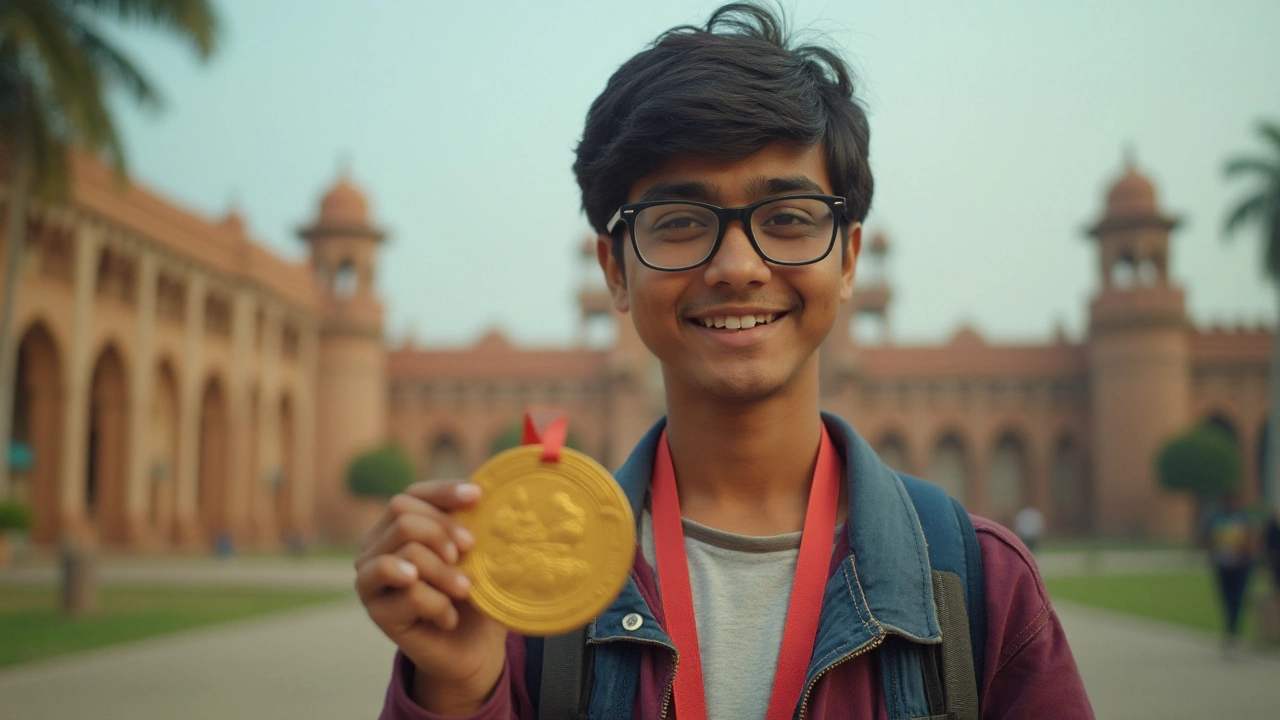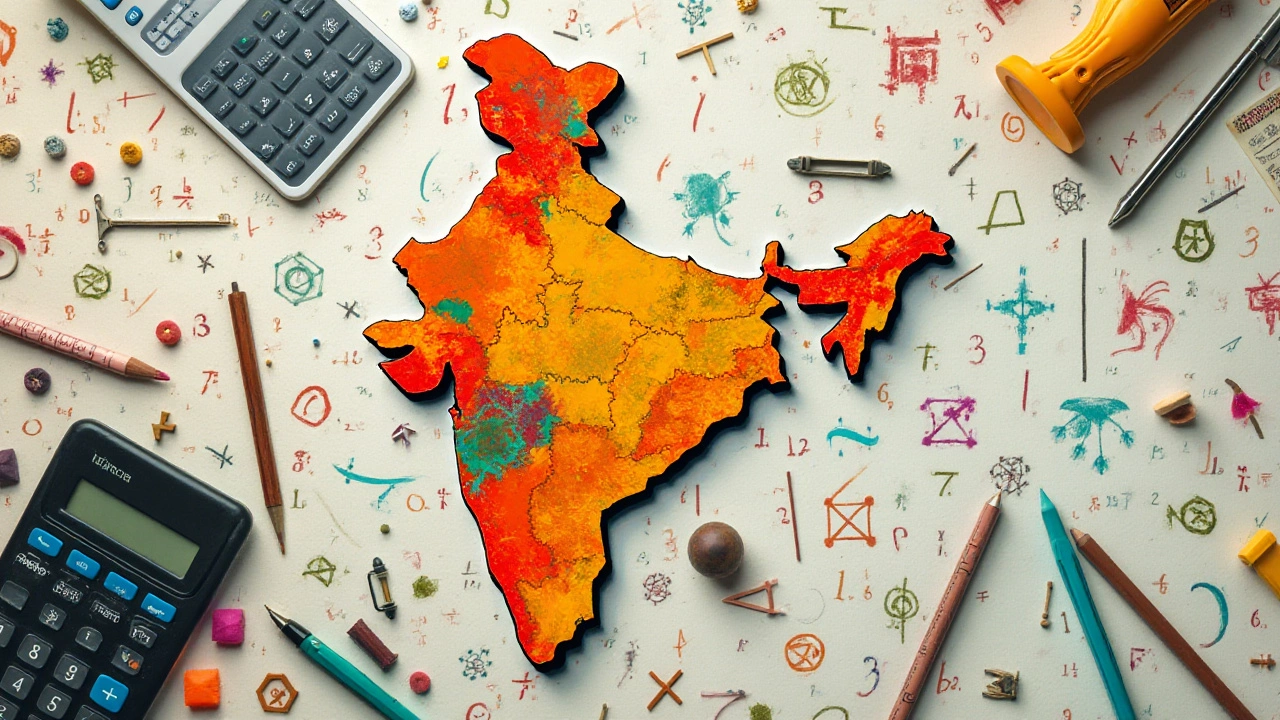
Discover the Most Prestigious Mathematics Competition: An In-Depth Look
Mathematics has long been recognized as a cornerstone of educational pursuits, challenging minds and sharpening analytical skills. Within the realm of mathematics, certain competitions stand out for their prestige and global recognition. These exams are more than mere tests; they are fiercely contested arenas where the brightest young minds showcase their prowess.
When considering the most prestigious math competition, one exam often rises above the rest, celebrated for its rigor and esteemed history. In this exploration, we delve into what makes this exam a coveted milestone for aspiring mathematicians worldwide. Whether you're contemplating participating or simply intrigued by the allure of competitive math, this article offers meaningful insights and practical advice.
- The History of the Prestigious Math Exam
- Significance in the World of Academia
- Tips for Aspiring Participants
- Interesting Facts and Trivia
The History of the Prestigious Math Exam
The journey into the history of the most prestigious math competition is akin to unlocking a treasure trove of educational and intellectual achievement. The roots of this celebrated exam can be traced back to the early 20th century, when the International Mathematical Olympiad (IMO) held its inaugural event in Romania in 1959. Initially, seven Eastern Bloc countries participated, marking the beginning of what has become a global platform showcasing mathematical talent. Over the years, the IMO has grown exponentially, now annually welcoming participants from over a hundred countries. The competition's rich heritage is a testament to its enduring legacy and its transformative impact on mathematics education worldwide.
The IMO was born out of a desire to foster friendly relations among young mathematicians from different regions and to nurture their passion for mathematics through challenging problems. Its establishment stands as a remarkable example of how academic competitions can transcend geopolitical boundaries, proving to be a unifying force amidst a historically turbulent era. Early editions of the competition featured problems crafted by eminent mathematicians of the time, each designed to push the boundaries of young minds with innovative thinking challenges. The competition's initial success inspired the formation of other math competitions internationally, extending the reach and significance of these intellectual contests.
By the late 20th century, the IMO had solidified its status as a rite of passage for aspiring mathematicians. Legendary figures in mathematics often fondly recall their participation in this esteemed exam, highlighting the profound influence it had on their careers. As noted by renowned mathematician Terence Tao, himself a former IMO medalist, "The IMO is more than a competition; it is a celebration of the joy and beauty of mathematics." Such endorsements underscore the cultural and intellectual importance of the exam. As the years passed, the competition's problems evolved to reflect advancements in mathematical thought, maintaining its standing as a top-tier competitive math exam.
The IMO is more than a competition; it is a celebration of the joy and beauty of mathematics.
In the present day, the significance of the IMO is seen in how it continues to inspire a new generation of mathematicians. National and regional math competitions often serve as preliminary rounds leading up to the IMO, each playing a crucial role in identifying and preparing talented individuals for this ultimate contest. Notable universities and institutions regard participation, and especially medaling, in the IMO as a noteworthy accomplishment, opening doors to educational opportunities and fostering partnerships. The history of such a prestigious exam not only reflects its resilience over decades but also highlights its integral role in shaping the global mathematical community. This interconnected web of competitions, training camps, and educational initiatives celebrates the pure joy of mathematical discovery and representation on an international stage.
The IMO's illustrious past is symbolized by an impressive showcase of statistics. For instance, since its inception, the competition has seen myriad problem sets, each meticulously constructed to present a balanced mix of algebra, geometry, number theory, and combinatorics. A look back reveals that over 70% of participants describe the event as life-changing, showcasing the magnitude of influence this single examination holds. This remarkable history paves the way for future explorations into how competitive maths shape careers and create lifelong connections among math enthusiasts worldwide.

Significance in the World of Academia
The most prestigious math competition, the International Mathematics Olympiad (IMO), holds a special place in the heart of the academic universe. Founded in 1959, the IMO has grown from a mere intellectual contest into a symbol of global camaraderie and scholarly achievement, with participants hailing from over 100 countries each year. Its sheer level of difficulty challenges even the most gifted young mathematicians, transforming the competition into a rite of passage for those who dare to aspire to mathematical greatness.
The impact of the IMO extends beyond the competition itself, influencing educational systems worldwide. Many countries have modeled their curricula to groom students for success at the IMO, highlighting the competition's intrinsic value to academic communities. Exceptional performance in this prestigious math exam often opens doors for young scholars, leading to opportunities at world-renowned universities and prestigious research positions. Math competition winners frequently become leaders in the fields of science, technology, engineering, and mathematics, exemplifying the transformative power this examination holds.
Esteemed universities, such as MIT and Stanford, regard participation in the IMO as a hallmark of a student's intellectual capability. A quote from Dr. Mary Todd Allen, a mathematician at a prestigious institution, underscores the importance:
"The International Mathematics Olympiad is less a competition and more a global gathering of the brightest minds with mathematics as their shared language. It signifies not just intellectual achievement, but a dedication to pursuing knowledge beyond conventional boundaries."Such recognition speaks to the competition's ability to elevate a student's academic profile significantly.
Moreover, the IMO fosters cultural exchange and friendships beyond borders. Participants develop valuable skills in problem-solving and critical thinking, which become essential assets in various professional landscapes. Educational systems that incorporate an IMO-like approach to math education often see improvement in their students' problem-solving abilities and analytical skills, showcasing the enduring impact this prestigious competition has on academic landscapes around the world. The IMO remains an inspiring testament to what dedicated individuals can achieve, propelling both them and the field of mathematics towards remarkable futures.

Tips for Aspiring Participants
Preparing for the most prestigious math competition can be both exciting and daunting. The journey to success in such an exam doesn't merely rely on raw intelligence, but rather a strategic approach to studying and problem-solving. Start by immersing yourself in a diverse range of mathematical topics; this breadth of knowledge will give you a foundation to tackle unexpected challenges. Building a strong base in core areas such as algebra, calculus, and number theory is essential, but also take the time to explore geometric theorems and combinatorial puzzles. Dive deep into each topic, making sure to understand how they interconnect. This interconnectedness often manifests in complex problems where a single solution requires insights from multiple areas of mathematics, challenging and refining your analytical abilities.
In your study regimen, consistency trumps intensity. Set aside dedicated time each day to practice problem-solving. Variability in the types of problems is key; this variability keeps the mind agile and adaptable. Participate in online forums or local math clubs where you can discuss theories and problems with peers. Such interactions will not only deepen your understanding but also reveal different perspectives and strategies. Remember, it's not about solving every problem perfectly but developing a flexible problem-solving mindset. One effective method is to revisit problems periodically, trying to solve them using new techniques you have learned. This practice solidifies your understanding and confidence, preparing you for the dynamic nature of prestigious math exams.
Carl Sagan once said, "Somewhere, something incredible is waiting to be known." This quote exemplifies the wonder of mathematical discovery and exploration, providing inspiration to every aspiring participant.Working with past papers is invaluable, so treat them as a significant part of your preparation. By analyzing past papers, you identify patterns in question types and difficulty levels. Exam trends often repeat, allowing you to channel your efforts into mastering the most recurring types of problems. Use these past papers to simulate exam conditions, timing yourself to manage the pressure of time constraints. Such simulation fosters resilience and adaptability, crucial traits for achievement. Also, create a personalized log of the mistakes you make during these tests, observing common errors or recurring misconceptions. This learning log is a powerful tool, guiding you in recalibrating strategies and correcting misunderstandings before the exam.
Seeking guidance from mentors and teachers can also play a critical role in your preparation journey. Experienced mentors provide unique insights and can guide you through complex theories untangled by their seasoned perspective. Don't hesitate to reach out and discuss your study plan or seek clarification on perplexing topics. Additionally, consider attending workshops or math camps to deepen your insight and knowledge. Not only do these gatherings offer structured learning, they also provide networking opportunities with like-minded mathematics enthusiasts, enriching both your academic and personal growth. This support network can be a catalyst, often shedding light on approaches or concepts you may not have considered.
As the exam date approaches, balance study with maintaining your mental and physical well-being. A clear and rested mind is more capable of creative problem-solving and logical reasoning. Incorporate practices such as meditation, regular exercise, and balanced nutrition into your daily routine. These habits ensure that you remain focused and prepared when the test arrives. Remember, undertaking such an esteemed math competition is a marathon rather than a sprint. Excellence is achieved not just through intelligence, but a harmonious blend of knowledge, discipline, and well-being. Embrace the process with enthusiasm and determination, understanding that you're not just preparing for an exam, but embarking on a journey of intellectual growth.

Interesting Facts and Trivia
When it comes to prestigious math competitions, each one boasts fascinating stories and anecdotes that add layers of intrigue to its already daunting reputation. Among these, the International Mathematics Olympiad (IMO) often finds a spotlight, revered by many as the benchmark of excellence in the realm of competitive exams. With roots tracing back to 1959, the IMO has a lineage of molding prodigious talents and nurturing the mathematical genius of young students. Delving into the history reveals that the first ever IMO was held in Romania, with participation from merely seven Eastern European countries. Today, it has burgeoned into a global extravaganza with over 100 countries participating, highlighting the universal appeal of mathematics as a unifying language across cultures.
The prestige of the IMO isn't merely due to its long-standing history. It's also the stories of past participants who have gone on to shape significant paths outside the competition. Many such participants have made noteworthy contributions in varied fields such as academia, technology, and finance. The criteria for evaluation in this math competition does not necessarily focus solely on correct answers but also celebrates innovative approaches and ideas. This ethos encourages students to think creatively, often referred to as "mathematical arts". A notable fact is that Terry Tao, a recipient of the illustrious Fields Medal, is among the distinguished IMO medalists, illustrating how this competition can be a stepping stone for monumental achievements.
One fascinating aspect of these exams that often sparks excitement among math enthusiasts is the annual tradition of 'Problem of the Day' that spurred from the IMO's format. During the competition, creative and complex problems are shared with students globally, inspiring a wave of attempt and dialogue around possible solutions. These problems typically reflect real-world challenges, urging participants to engage problem-solving skills at an exceptional level. Adding a slice of human connection, contestants often find themselves forming lifelong friendships during the weeks of rigorous preparation and debate. As pointed out by countless participants, these experiences are invaluable beyond the competitive context.
Let's not forget the presence of oddities that continue to bemuse and excite the curious minds out there. Did you know that some countries have developed dedicated study camps months prior to sending their representatives to the IMO? This showcases the competitive nature and the level of commitment it demands from every participant. Often, these camps simulate the competition environment to prepare the students mentally and emotionally. There's something inherently charming in witnessing young mathematicians collaborate, innovate, and thrive within a simulated world of numbers and formulas. To add a bit of trivia humor - a famous anecdote involves a contestant who passionately argued that his incorrect solution was a creative interpretation, claiming, "In math, imagination is more important than knowledge."






Write a comment